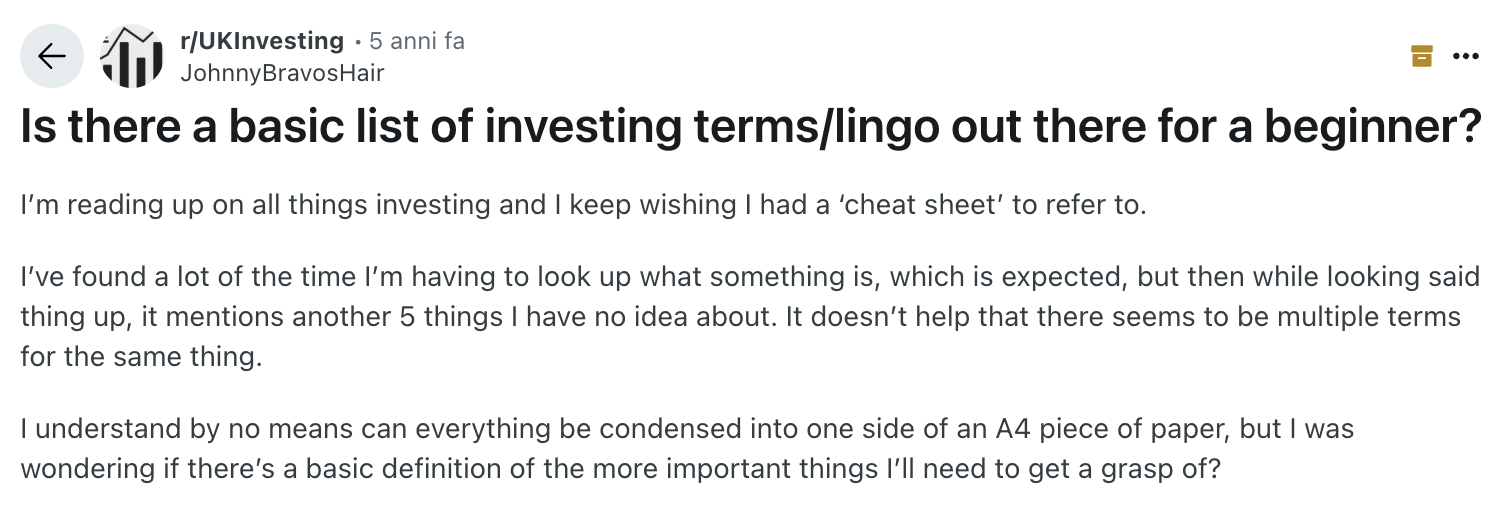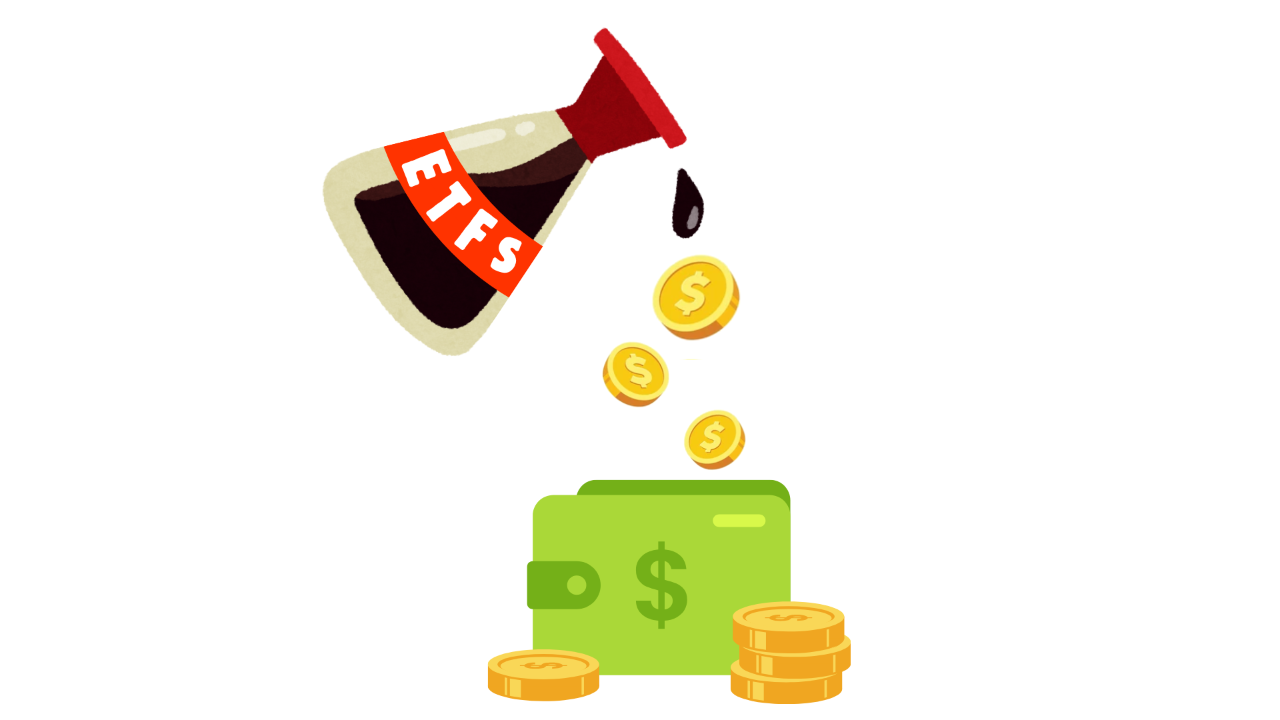
Everything You Need to Know to Speak Like a Stoic Investor
Jun 29, 2025Hello Stoic Investors,
I hope you've been enjoying this series over the past few months where I’ve been answering common investment questions from Reddit.
I think it’s a great way to get inside the minds of beginner investors and understand the problems and questions they have.
That way, I can provide valuable information to all of you, and who knows—maybe some of the people posting on Reddit are part of this community and will find answers to their questions!
Today, I want to answer this question I found, because I think it’s one of the most fundamental things every investor should know:
The ABCs of the Stoic Investor!

As a matter of fact, a key part of being an investor is to have a good understanding of the terms and definitions which characterize the stock market, but it's easy to feel lost among the multitude of them that exist out there.
Without a doubt, I can tell you two things:
1. 99% of the terms that one might think are necessary are actually marginal, only adding confusion to something that is already complex;
2. The remaining 1% of terms is what is truly important to know, and I've listed them below.
Take a screenshot of the list I’m going to share and hang it up in your room.
These are all the key terms you need to know!
The ABCs of the Stoic Investor
1. Stoic Terms Linked to Investments
- Amor Fati (Love of Fate): This idea teaches you to accept things you can’t control, like market changes. As an investor, it means accepting that markets will go up and down, and not being afraid of it.
- Ataraxia (Tranquility): The ability to stay calm even when things get tough. For an investor, this means staying calm and not panicking when the market rises or falls.
- Dichotomy of Control: A Stoic idea that we can control some things (our decisions) and others we can’t (market movements). In investing, this helps you focus on what you can control, like your savings strategy and how you spread your investments.
2. Financial Assets
- Stock: A piece of ownership in a company.
- ETF (Exchange-Traded Fund): Like a basket that holds a group of stocks (or any other assets) with similar characteristics.
- Bond: A type of investment where you lend money to a company or government and get interest in return.
- Mutual Fund: A fund managed by professionals that invests in different stocks, bonds, or other assets.
- REIT (Real Estate Investment Trust): A fund that invests in real estate properties and pays most of its profits to investors as dividends.
- Commodity: Raw materials like gold, oil, or wheat that you can invest in directly or through funds.
3. Company Attributes
- Market Capitalization: The total value of all the shares of a company.
- IPO (Initial Public Offering): The first time a company sells its stock to the public.
- Blue-Chip Stocks: Stocks of large, well-established companies that are financially stable.
- Dividend: A part of a company's profits paid out to shareholders.
- Earnings Per Share (EPS): The profit a company makes divided by the number of shares. It shows how much profit the company makes per share.
- Revenue: The total amount of money a company earns from its business activities before expenses.
4. Stock Market Classifications
- Bull Market: A market where stock prices are rising and investors are optimistic.
- Bear Market: A market where stock prices are falling and investors are pessimistic.
- Correction: A short-term drop in stock prices, usually by around 10%, seen as a normal part of the market.
- Crash: A sudden and large drop in stock prices, often due to panic.
5. Asset Evaluation Tools
- P/E Ratio (Price-to-Earnings Ratio): A tool that compares a company’s stock price to its earnings per share.
- Volatility Index (VIX): A measure of how much stock prices are moving up and down. It is also known as the "fear index."
- Resistance Level: A price level where a stock has trouble moving above.
- Support Level: A price level where a stock has trouble falling below.
- Dividend Yield: The amount of money a company pays in dividends, compared to its stock price.
6. Strategies for Stock Market Transactions
- Market Order: A type of order to buy or sell a security at the current market price.
- Limit Order: A type of order to buy or sell a security at a specific price or better.
- Stop Loss Order: An order to sell a stock if it hits a certain price, limiting losses.
- Market-on-Close Order: An order to buy or sell a stock at the market price during the closing auction.
- Market-on-Open Order: An order to buy or sell a stock at the market price during the opening auction.
- Short Selling: Selling borrowed stocks in the hopes of buying them back at a lower price in the future.
7. Long-Term Investment Strategies
- Dollar-Cost Averaging (DCA): A strategy of investing a fixed amount regularly, no matter what the market is doing.
- Buy and Hold: A long-term strategy where you buy stocks and keep them for a long time, ignoring short-term market changes.
- Rebalancing: Adjusting your portfolio to make sure it still matches your target investment plan (e.g., 60% stocks, 40% bonds).
And there you have it!
Now you have all the fundamental terms you need to start learning how to invest.
Sure, there are thousands of other terms out there, but those just add confusion.
These are more than enough to get you started.
And now that you know all of them, it’s time to put them into practice and start investing!





